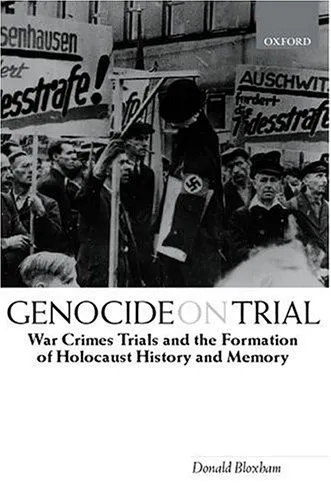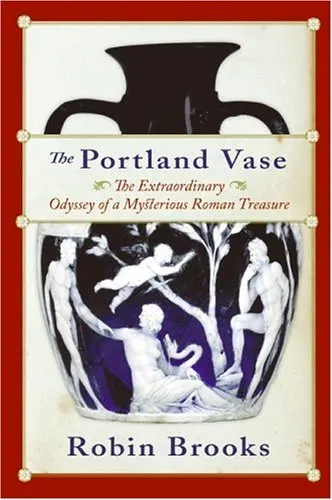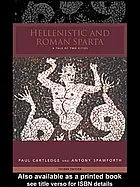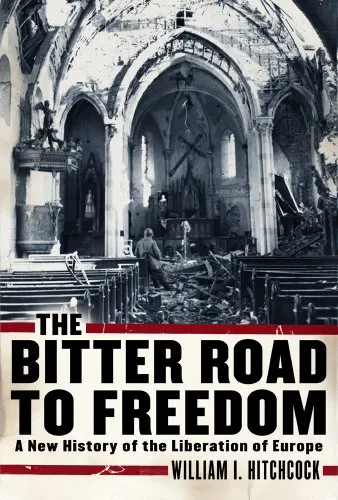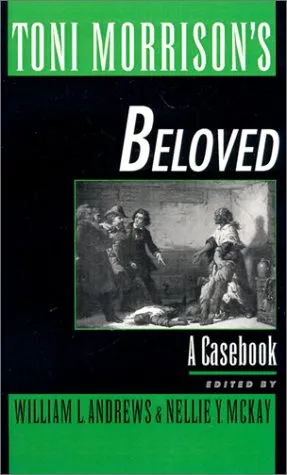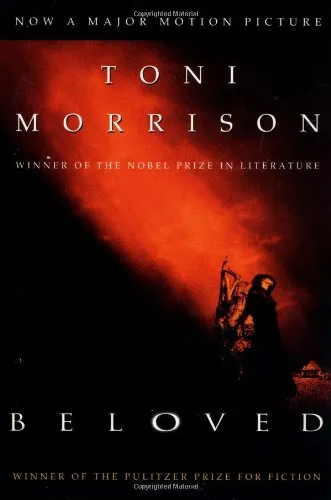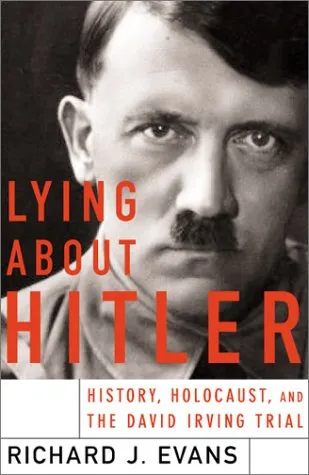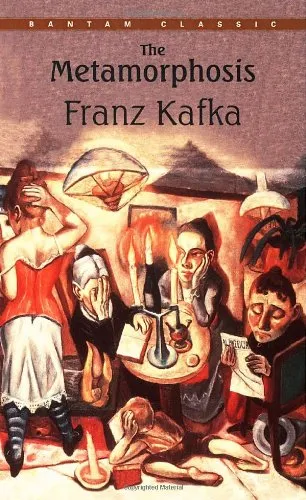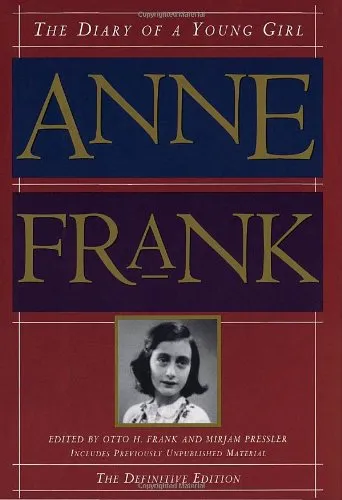Genocide on Trial: War Crimes Trials and the Formation of Holocaust History and Memory
4.2
بر اساس نظر کاربران

شما میتونید سوالاتتون در باره کتاب رو از هوش مصنوعیش بعد از ورود بپرسید
هر دانلود یا پرسش از هوش مصنوعی 2 امتیاز لازم دارد، برای بدست آوردن امتیاز رایگان، به صفحه ی راهنمای امتیازات سر بزنید و یک سری کار ارزشمند انجام بدینکتاب های مرتبط:
معرفی کتاب
کتاب "Genocide on Trial: War Crimes Trials and the Formation of Holocaust History and Memory" نوشته دانلد بلکسهام، اثری جامع و پژوهشی است که به تحلیل دادگاههای جنایات جنگی و تأثیر آنها بر شکلگیری تاریخ و حافظه هولوکاست میپردازد. این کتاب به طور دقیق فرآیند حقوقی این دادگاهها و نتایج فرهنگی و تاریخی آنها را بررسی میکند.
خلاصه مفصل کتاب
کتاب با بررسی پیشینه تاریخی دادگاههای جنایت جنگی از دوران پس از جنگ جهانی دوم آغاز میشود. بلکسهام به تحلیل دادگاه نورنبرگ و دیگر محاکمات پس از جنگ پرداخته و نشان میدهد چگونه این محاکمات درک عمومی از هولوکاست را تقویت و تغییر دادهاند. از جمله جنبههای مهمی که در کتاب بررسی میشود، نحوه ثبت و مستندسازی جنایات برای امور حقوقی و تأثیر اجتماعی آن بر عوام و دولتهاست.
نویسنده توجه ویژهای به نقش دادگاههای جنایی بینالمللی و منطقهای در تبیین و تعریف عمومی Genocide کرده و نشان میدهد چگونه این فرآیندها به ثبات مفهومی و روایتی کشتار جمعی کمک کرده یا مانع آن شدهاند.
نکات کلیدی
- تحلیل عمیق از تأثیر دادگاههای جنایات جنگی بر تاریخنگاری هولوکاست.
- بررسی نقش دادگاهها در شکلدهی به حافظه جمعی و فرهنگی هولوکاست.
- تأثیر فرایند حقوقی بر درک عمومی و سیاستهای جهانی درباره Genocide.
نقلقولهای مشهور از کتاب
"فرایند تاریخی دادگاهها نه تنها به عدالت حقوقی، بلکه به عدالت تاریخی نیز دست یافتند."
"دادگاههای جنایت جنگی، محدود به جنبه حقوقی نیستند؛ آنها تبدیل به اسنادی برای آموزش بشریت شدهاند."
چرا این کتاب مهم است
کتاب "Genocide on Trial" نه تنها به عنوان یک منبع ارزشمند برای پژوهشگران تاریخ و حقوق بینالملل محسوب میشود، بلکه برای علاقهمندان به مباحث حقوق بشر و مطالعات Genocide نیز بسیار آموزنده است. این اثر با ارائه دیدگاهی جامع و تحلیلهای دقیق، به مخاطبان کمک میکند که جایگاه دادگاههای جنایات جنگی در تاریخ معاصر و تأثیر آنها بر حافظه جهانی را بهتر درک کنند.
"Genocide on Trial: War Crimes Trials and the Formation of Holocaust History and Memory" offers an in-depth exploration of how war crimes trials have shaped the historical narrative and collective memory of the Holocaust. Written by Donald Bloxham, a renowned historian, the book serves as both a scholarly resource and an enlightening read for anyone interested in understanding the complexities surrounding Holocaust trials and their broader implications.
Detailed Summary of the Book
The book meticulously examines the various war crimes trials that have taken place since the end of World War II, focusing on their role in documenting and interpreting the events of the Holocaust. Bloxham delves into the most significant trials, including the Nuremberg Trials and the Eichmann Trial, analyzing their procedures, outcomes, and the public reception at the time.
His analysis extends to the more contemporary trials held in the late 20th and early 21st centuries, exploring how they have contributed to the evolving understanding of genocide, justice, and historical memory. Bloxham argues that these trials, beyond their legal ramifications, have played a crucial role in forming a narrative that not only delineates atrocity and accountability but also influences how societies remember and teach future generations about the Holocaust.
By weaving together legal history, social history, and the history of memory, "Genocide on Trial" captivates readers with its thorough research and insightful perspectives on how the Holocaust has been judged over the decades.
Key Takeaways
- The trials have served as a cornerstone in defining the legal and moral frameworks for addressing genocide and crimes against humanity.
- Both contemporary and retrospective views on these trials reveal shifts in societal values, legal principles, and the politics of memory.
- The cultural representation of these trials in media and educational systems plays a significant role in shaping public understanding and memory of the Holocaust.
- While war crimes trials are crucial in dealing with past atrocities, they also highlight the limitations of legal systems in achieving comprehensive justice and accountability.
Famous Quotes from the Book
"The trials of the past reveal the complexities of justice in the shadow of atrocity, challenging us to consider not only what has been deemed unlawful but also what is remembered as unforgivable."
"Memory is as much an act of justice as the verdicts handed down in the courtroom, binding societies to their past actions and inactions."
Why This Book Matters
The book is significant for multiple reasons. Firstly, it illuminates the intricate connections between historical events and the ways they are legally and culturally interpreted over time. By providing a thorough analysis of post-war trials, Bloxham fosters a deeper understanding of not just the Holocaust but the societal and judicial mechanisms that dictate its place in history.
Moreover, "Genocide on Trial" serves as a critical reminder of the enduring importance of addressing past atrocities through both legal means and public discourse, stressing the interplay between law, history, and memory. It challenges readers to reflect on contemporary issues of justice and human rights, drawing parallels between past and present struggles to hold perpetrators accountable and to remember victims responsibly.
For educators, historians, legal scholars, and general readers alike, Bloxham's work is a pivotal contribution to the discourse on genocide, memory, and justice, making it an essential read for those seeking to understand the lasting impacts of the Holocaust and the trials that followed.
دانلود رایگان مستقیم
شما میتونید سوالاتتون در باره کتاب رو از هوش مصنوعیش بعد از ورود بپرسید
دسترسی به کتابها از طریق پلتفرمهای قانونی و کتابخانههای عمومی نه تنها از حقوق نویسندگان و ناشران حمایت میکند، بلکه به پایداری فرهنگ کتابخوانی نیز کمک میرساند. پیش از دانلود، لحظهای به بررسی این گزینهها فکر کنید.
این کتاب رو در پلتفرم های دیگه ببینید
WorldCat به شما کمک میکنه تا کتاب ها رو در کتابخانه های سراسر دنیا پیدا کنید
امتیازها، نظرات تخصصی و صحبت ها درباره کتاب را در Goodreads ببینید
کتابهای کمیاب یا دست دوم را در AbeBooks پیدا کنید و بخرید
1408
بازدید4.2
امتیاز0
نظر98%
رضایتنظرات:
4.2
بر اساس 0 نظر کاربران
Questions & Answers
Ask questions about this book or help others by answering
No questions yet. Be the first to ask!
